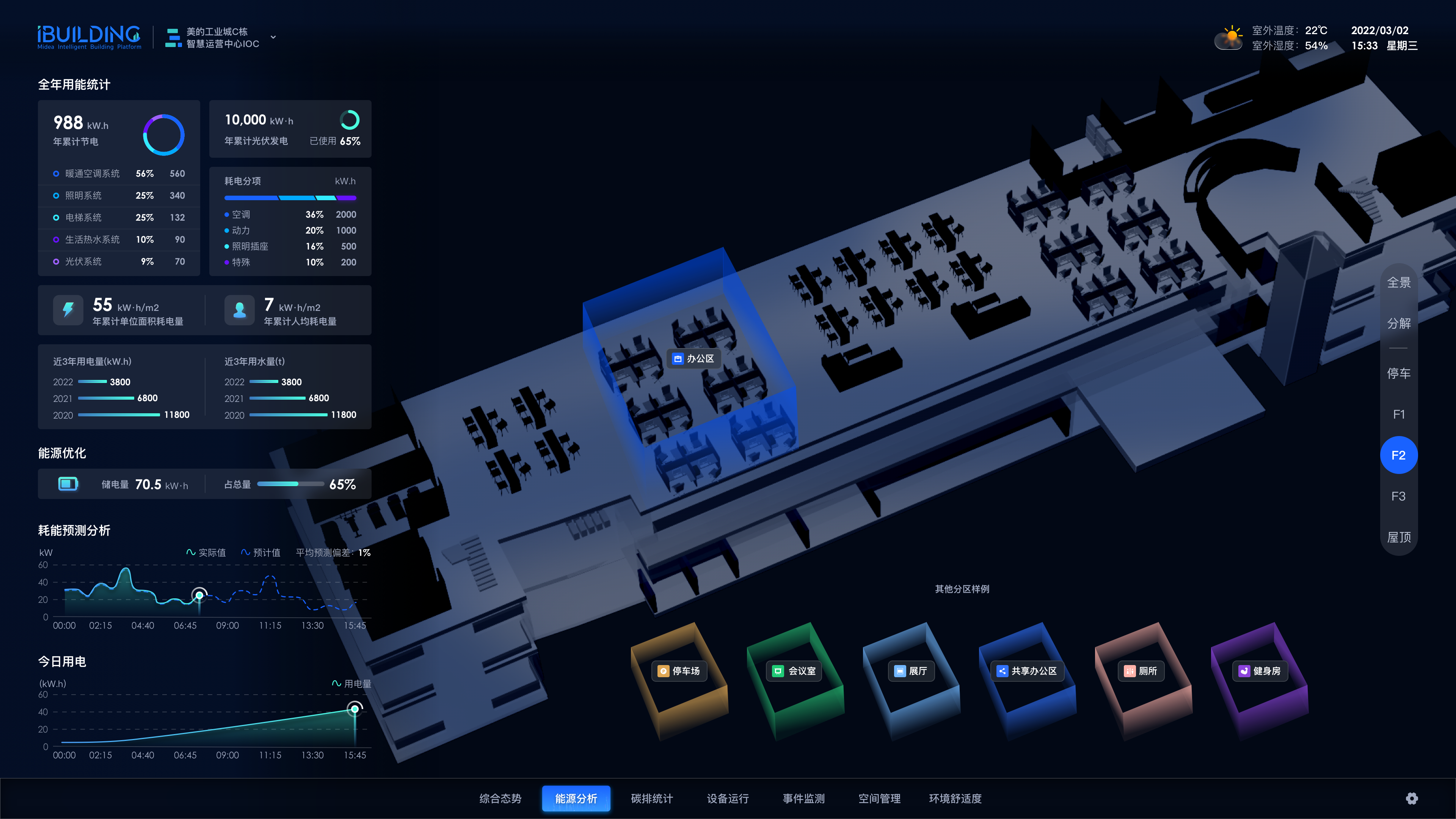
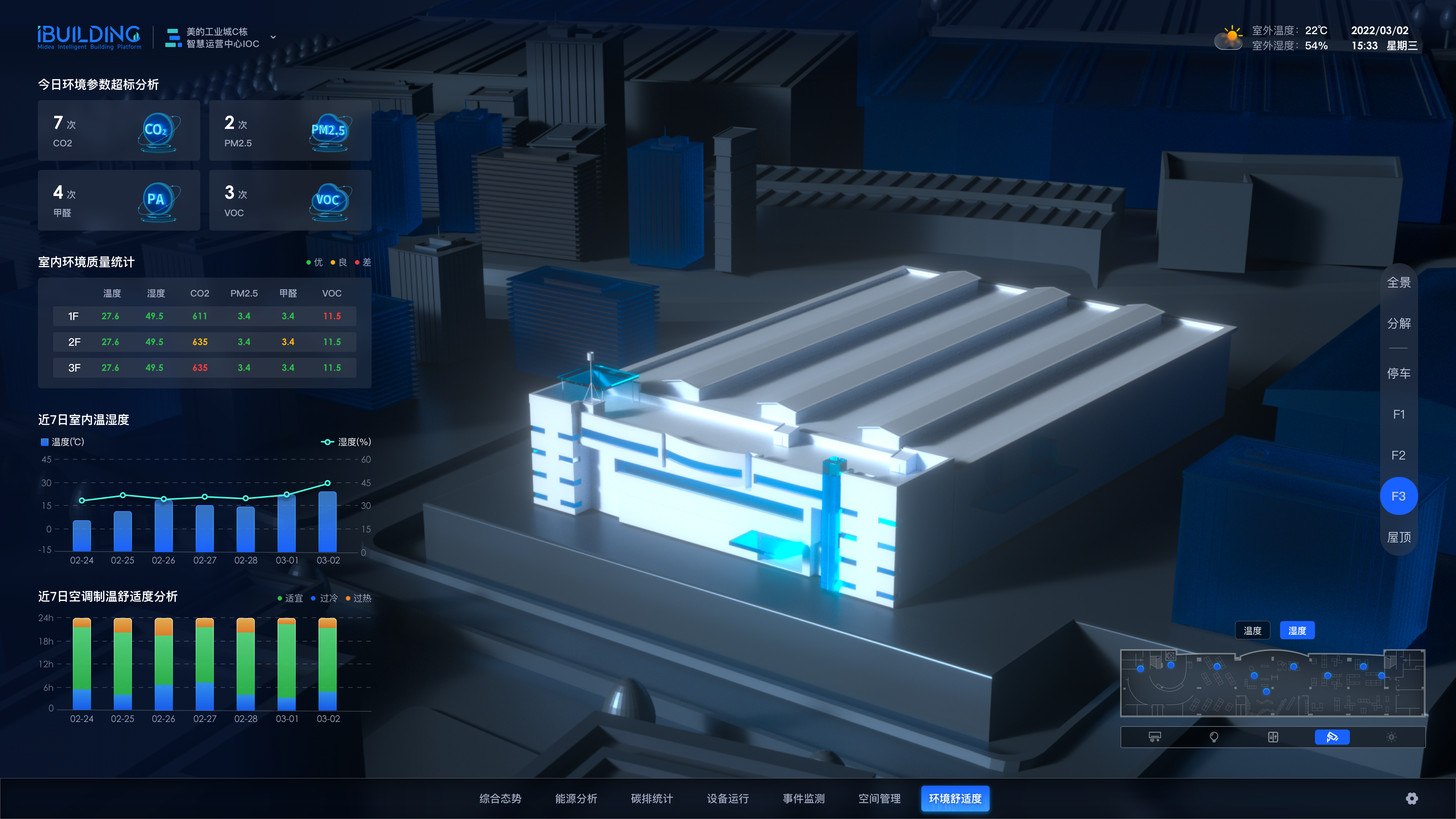
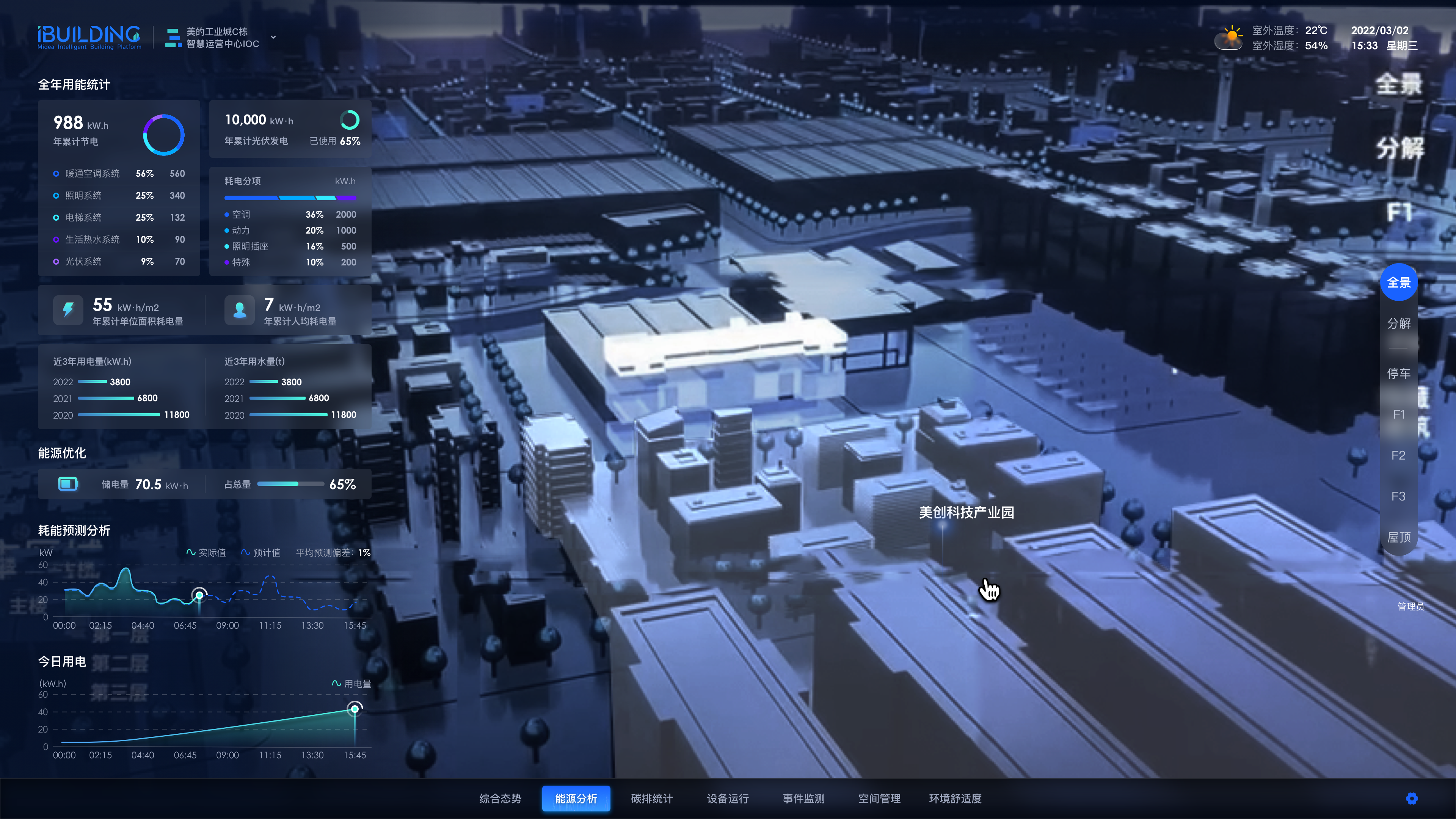
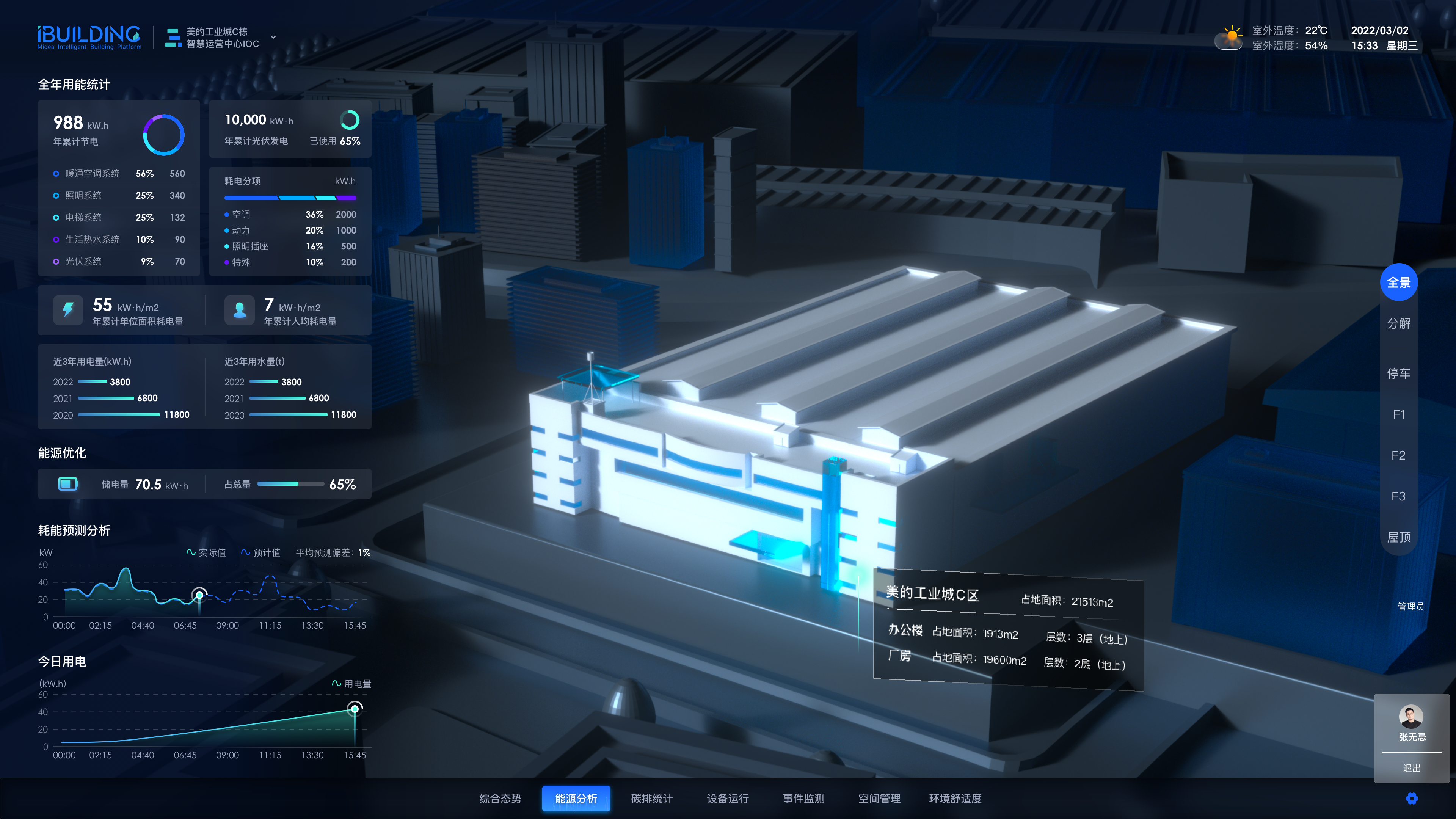
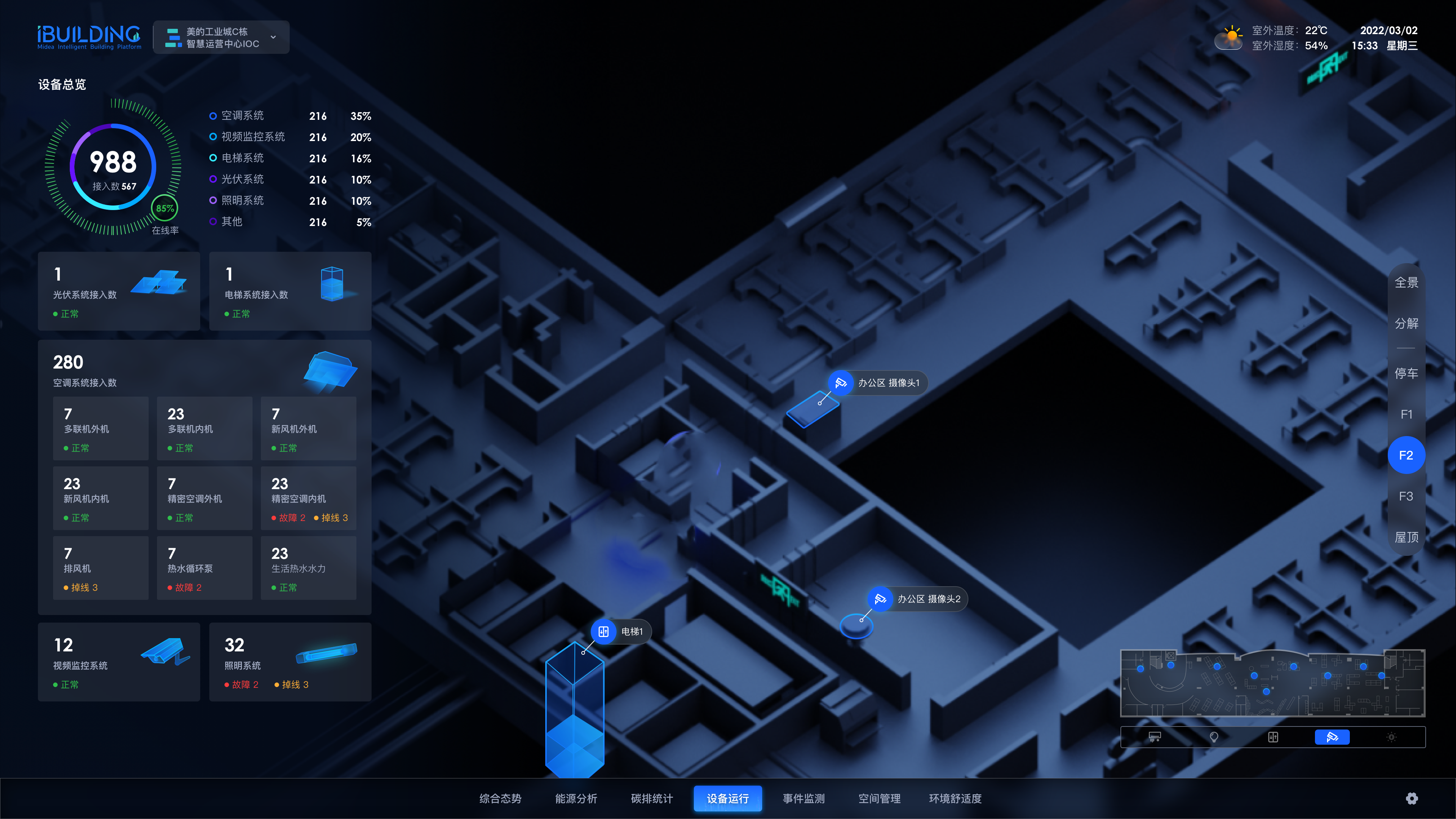
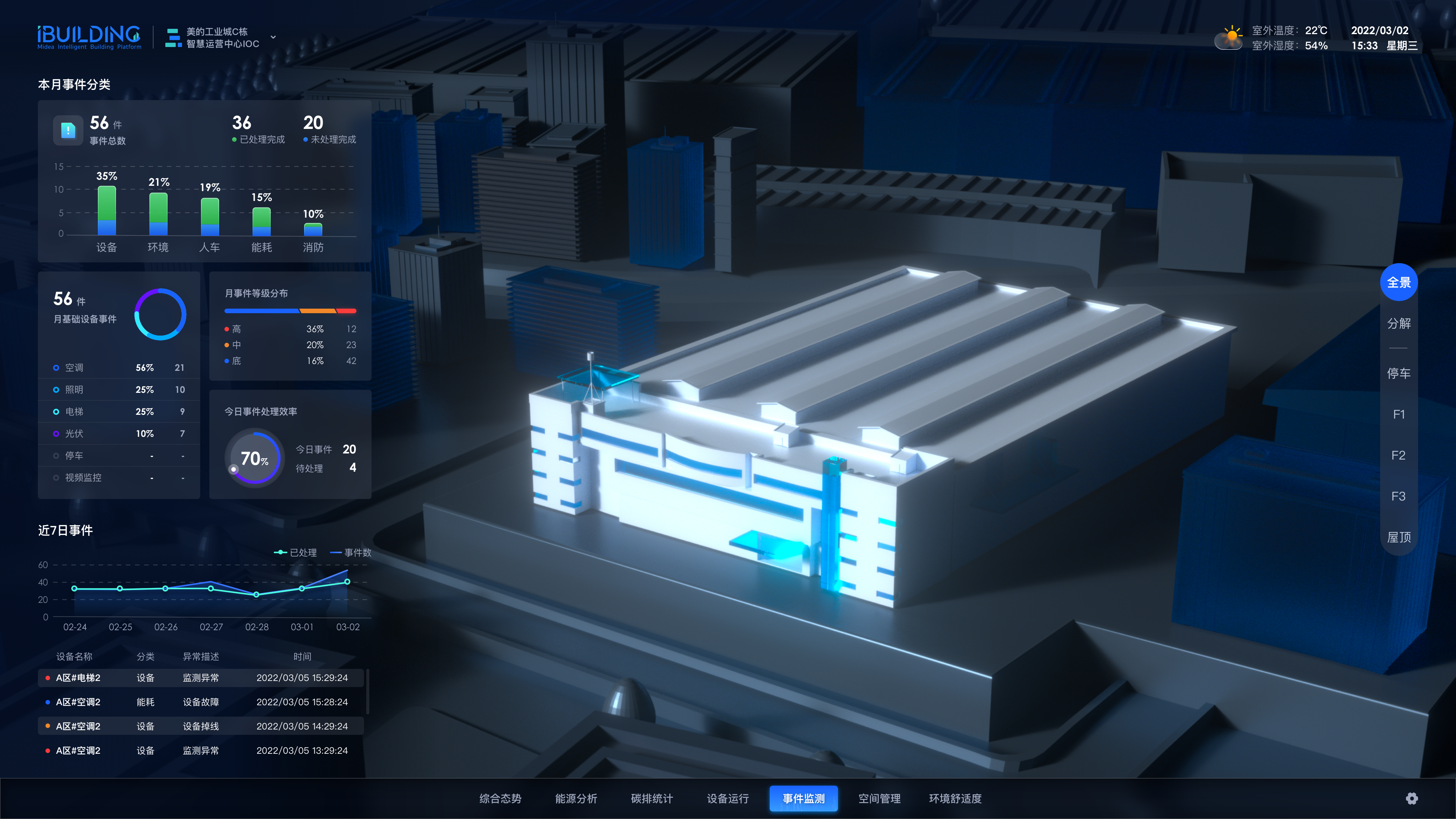
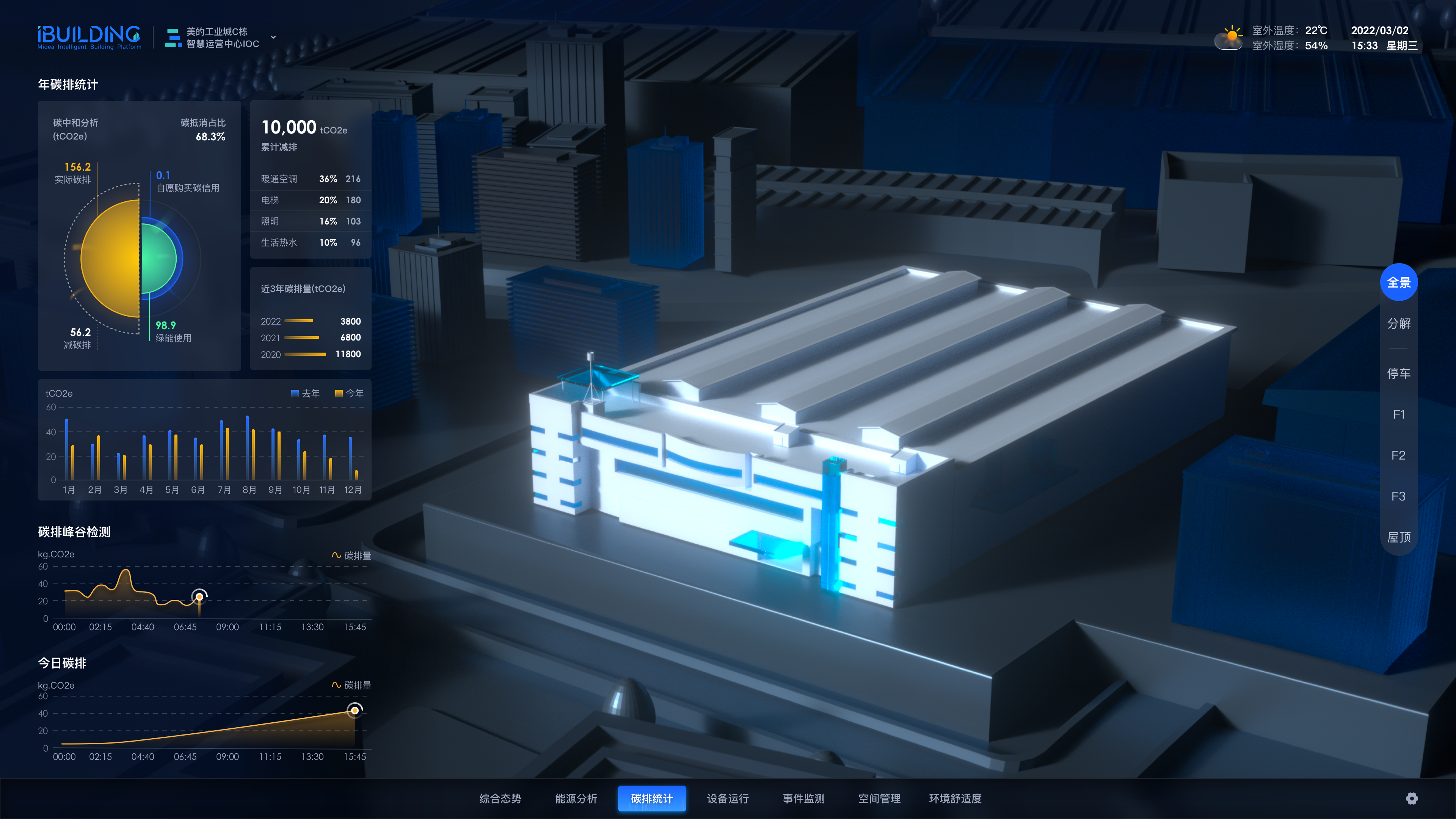
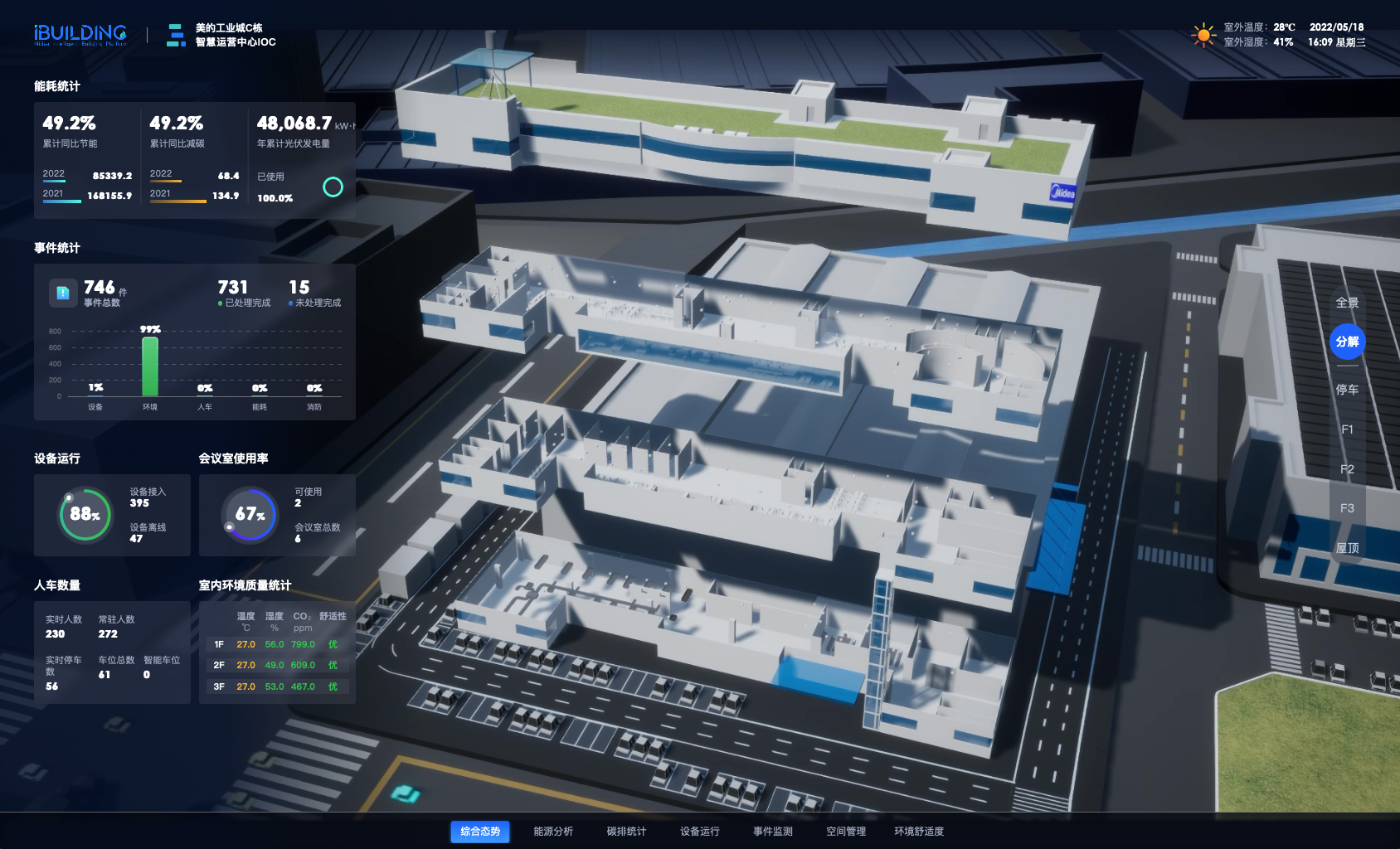
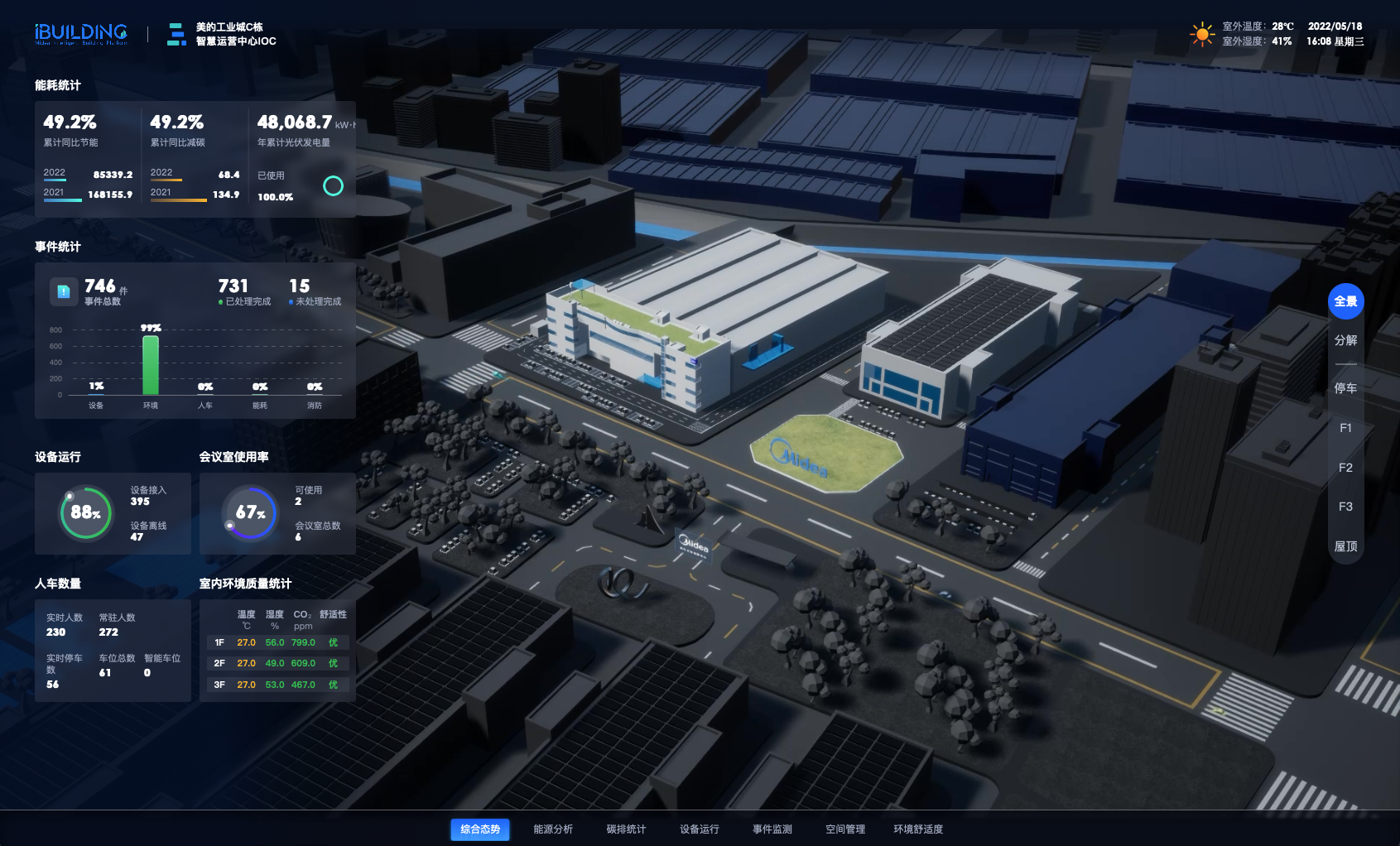
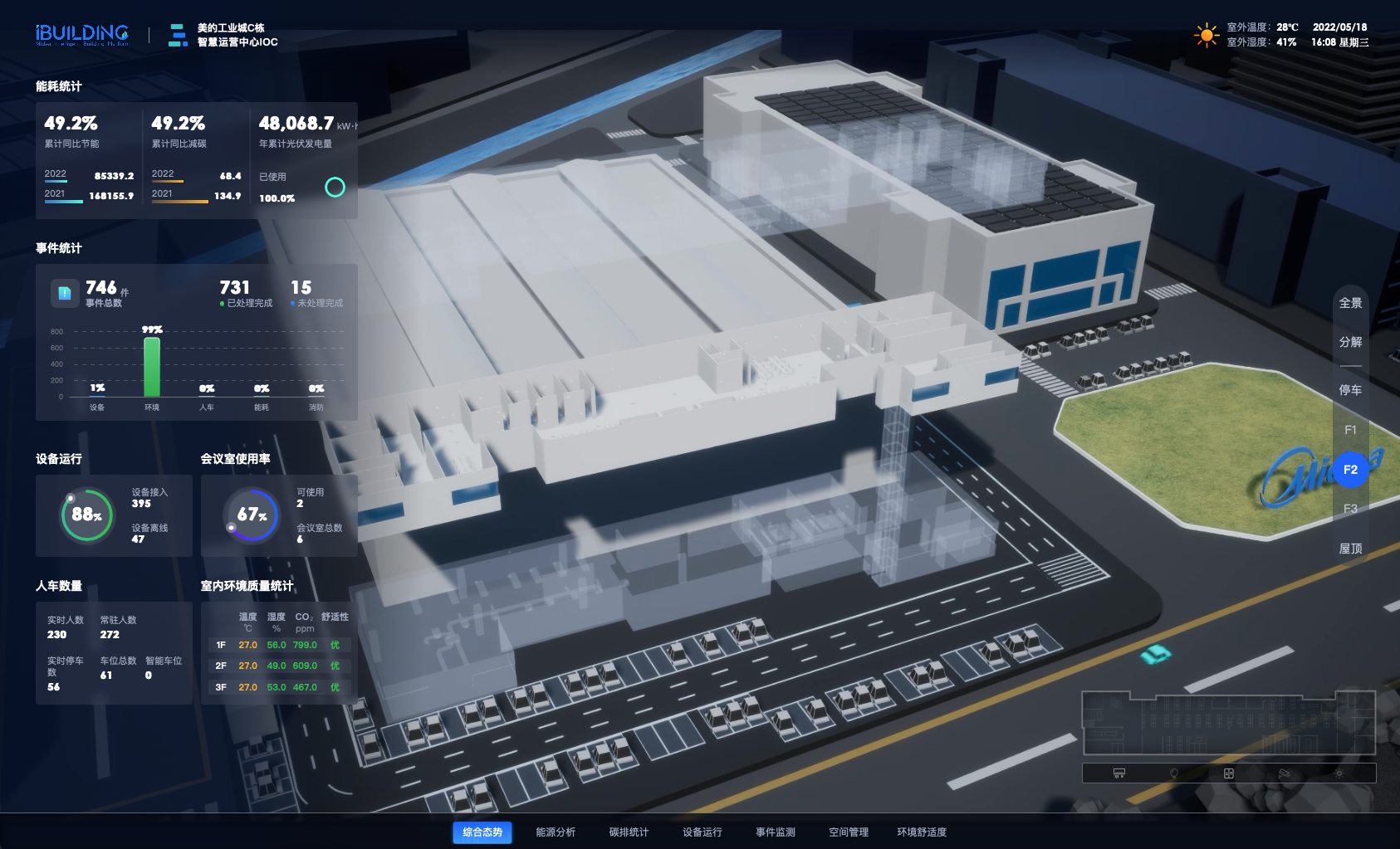
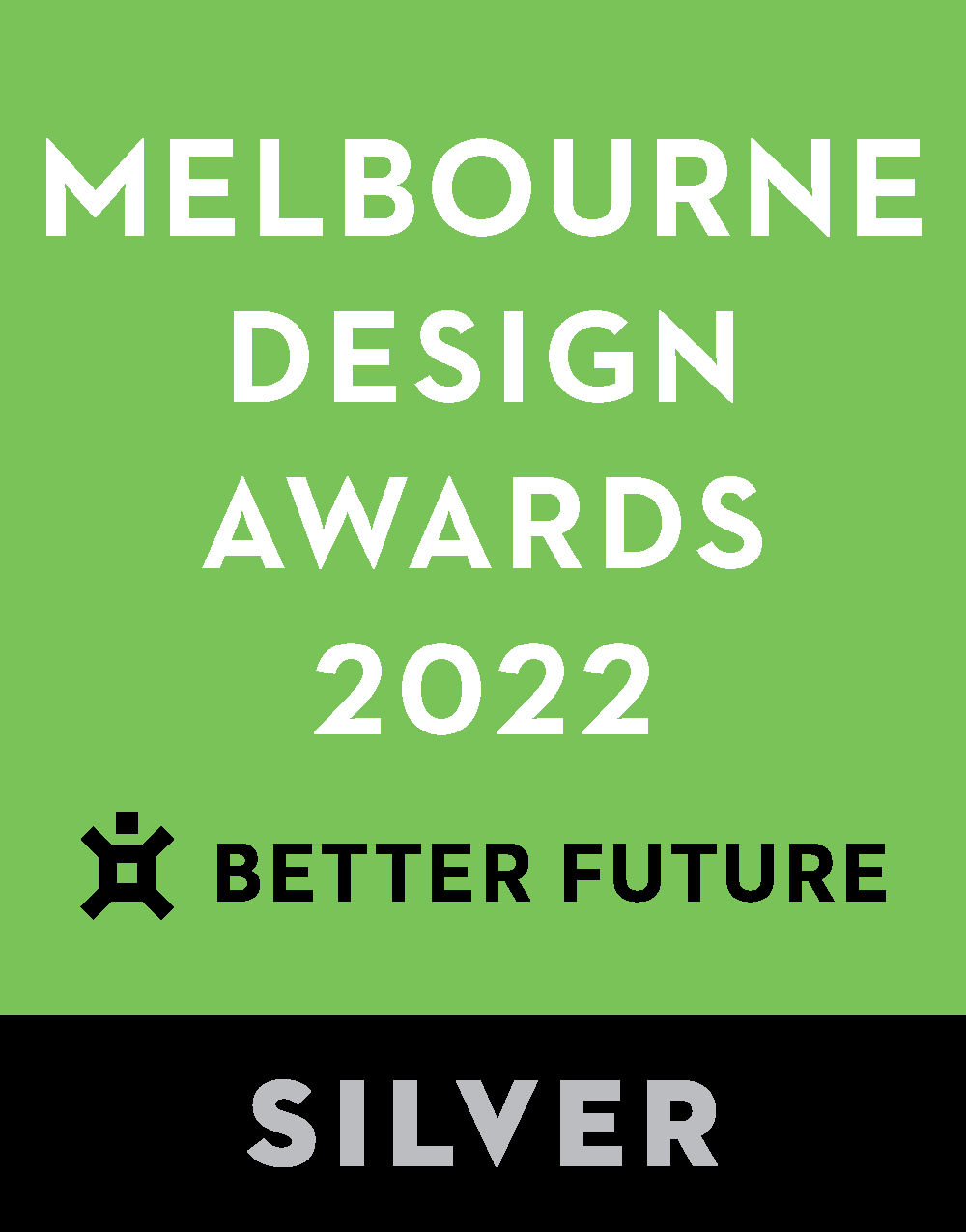
Project Overview
Since China put forward the goal of carbon peaking and carbon neutrality in September 2020, different sectors have responded with practical measures. Industrial parks, though a strong driver of urban economic growth, account for more than 31% of the country's carbon dioxide emissions, which hinders carbon control and reduction. Therefore a low-carbon transformation is urgent. Relying on the digital twin technology, Midea creates an IOC smart operation and maintenance center with massive amount of data. The system helps companies to manage equipment and reduce energy consumption through a standard process, thus promoting energy saving and emission cut and speeding up the realization of carbon peaking and carbon neutrality.
Organisation
Midea Building Technologies Division
Project Brief
The system integrates system data of different businesses, links equipment, energy consumption and the environment, records energy consumption data in real time, customizes intelligent energy saving solutions through the supporting backstage management system, and formulates reasonable operational plans for different time periods. Also it can display integrated information such as real-time warnings of important events, multi-dimensional statistics of energy consumption and real-time analysis of the indoor environment, allowing park managers to gain three-dimensional insight into the building's situation.
Project Innovation/Need
The system enables the collection, storage, statistics, analysis, energy saving diagnosis, optimisation and integrated management of water, electricity, space and carbon emission, helping to reduce energy losses and increase operation rate.
Design Challenge
The static icons, coupled with dynamic digital twin models, are designed to have a sense of moving. The digital visibility graphs, tightly linked and highly consistent in the design form, features a brand colour scheme and embodies the brand value.
Future Impact
With this system, the company has realized better and more efficient intelligent management, reducing the cost of manual operation and maintenance. Also, the system is expected to cut emission and save energy by about 20% a year.
Systems - Commercial
Commercial projects recognises that design is the means to create meaningful experiences for users, create value for people and drive profit for businesses.
All systems are designed to serve a purpose – and that purpose is to serve people. Systems design optimises systems performance by systematically focusing on the human component - human capacities, abilities, limitations and aspirations.
More Details

